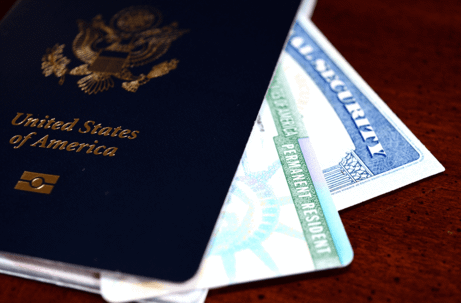There is a lot of confusion regarding an immigrant's ability to adjust their status if they enter the United States through a visa waiver program or ESTA. Without a clear understanding of the implications involved, you may severely damage your chances of residing in the United States.
What is ESTA?
ESTA stands for Electronic System for Travel Authorization and is a visa waiver program for eligible individuals from certain countries. While an ESTA or “visa waiver" may allow you to enter the United States without having to obtain a visa, it does require you to waive certain rights that may make things more difficult for you later on.
What is Adjustment of Status?
Adjustment of status is the process whereby someone converts their current immigration status to that of a lawful permanent resident of the United States, also known as obtaining a “green card”.
Adjustment of status is an option for most employment-based and family-based visas, but there are limitations for certain types of visas or admittance to the United States. One of those is ESTA.
What are the Limitations of ESTA?
One of the key limitations when entering the United States on ESTA is that you cannot file for a change of status or extension of status. Your rights in removal proceedings are also substantially limited. For example, you waive the right to appeal or review the removal action except in the case of asylum. You also cannot request an appeal if your ESTA application is denied.
Who Can Request Adjustment of Status with ESTA?
The only exception for ESTA adjustment of status is immediate relatives of United States citizens, so long as they did not make any misrepresentation or have fraudulent intent at the time of entering the United States.
Qualifying relatives include:
- Spouse
- Unmarried children under the age of 21
- Parents, if the citizen is under 21
The sponsoring family member must file the I-130 form on your behalf within the 90-day period of validity for your ESTA.
How Can Preconceived Intent Impact Adjustment of Status?
Preconceived intent occurs when an immigrant enters the United States on a temporary visa knowing full well that they intend to pursue a green card or other form of long-term residency. This dishonesty can be very problematic when requesting adjustment of status with ESTA, because you have claimed that you only intend to remain in the United States for a 90-day period. While preconceived intent alone is not sufficient to bar adjustment of status[2], it's best to avoid the complication altogether by applying for permanent residency through recommended channels.
What is the 30/60/90 Day Rule?
The 30 / 60 / 90 Day Day Rule is not a rule, it is a rule of thumb. It is also not a guarantee. Generally, however, immigration lawyers advise that if the client entered the United States on a visa, like an ESTA, B1/B2, or other non-immigrant visa, they should wait. Waiting for longer periods of time, between thirty to ninety days, makes it more difficult for USCIS to accuse you of preconceived intent. Intentions can change over time and are generally difficult to prove—therefore, it is advisable to wait before applying for any immigration benefit, such as a green card, until you speak with an immigration attorney.
What is Immigration Misrepresentation?
Immigration misrepresentation should not be confused with preconceived intent. Misrepresentation in immigration law comes with greater consequences. Some people, for example, fail to list their spouse or children, or truthfully complete their ESTA form, such as hiding criminal issues. Years later, this can come back to haunt them. A finding of immigration misrepresentation can bar you from entering or returning to the United States.
When to Involve an Immigration Attorney
The adjustment of status, or green card process, is a complicated one. Many have spent years untangling a mess that could have easily been avoided if they simply consulted an immigration attorney at the start. If you entered the United States on any visa, or a visa waiver like ESTA, seek the counsel of a skilled immigration attorney in Orange County to guide you through this process.
If you wish to reside in the United States permanently or for an extended period of time, ESTA is not your best option. Our Orange County immigration lawyers can help you apply for the right visa that meets your needs and eligibility requirements. If you have already arrived in the United States through ESTA, contact our office as soon as possible so that we can advise of the best course of action.
Give us a call at (949) 478-4963 to arrange a consultation of your case.
[1] Momeni v. Chertoff, 521 F.3d 1094 (9th Cir. Mar. 31, 2008) (persons who entered the United States under the Visa Waiver Program, who marry and apply for Adjustment of Status after their 90 days have elapsed, cannot obtain removal proceedings before being removed, and are ineligible to adjust status), distinguishing Freeman v. Gonzales, 1444 F.3d 1031 (9th Cir. 2006).
[2] Matter of Cavazos, BIA Jan. 1980

